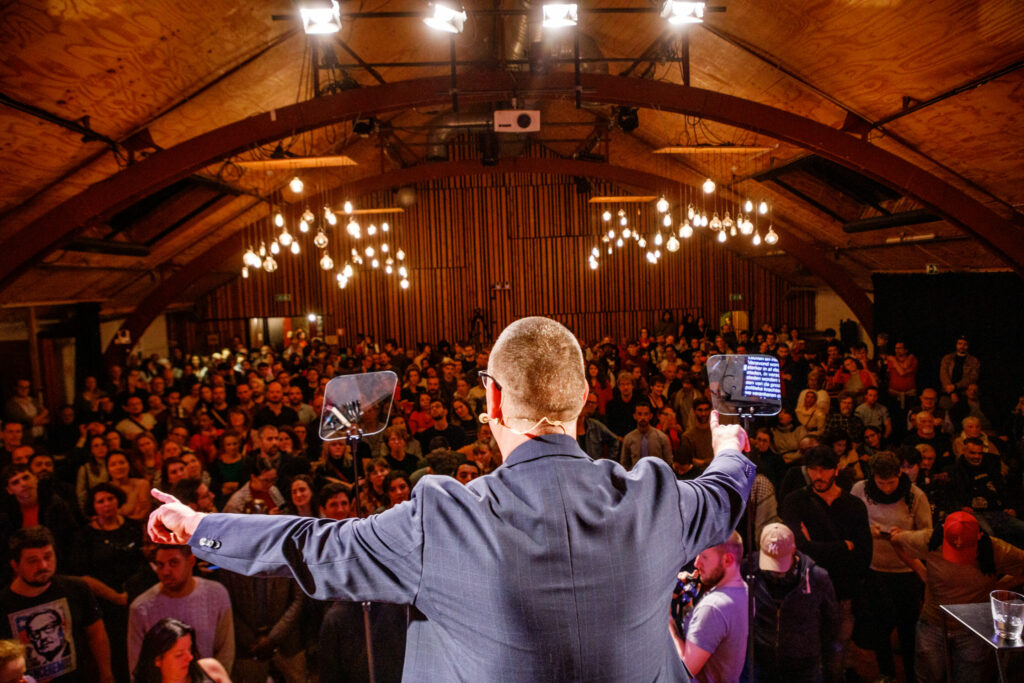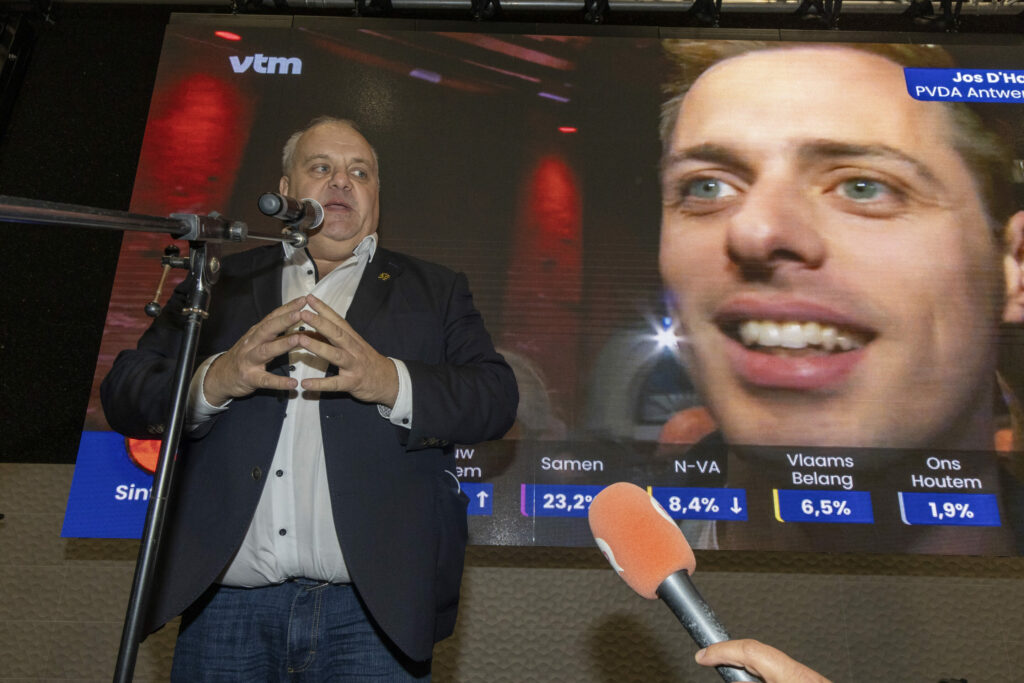The parties on opposite ends of the political spectrum in Belgium – radical left PTB-PVDA and far-right Vlaams Belang – made progress in many municipalities in the local elections on Sunday, but they rarely broke through.
While Vlaams Belang gained a number of seats on municipal councils across Flanders, the party remains condemned to the opposition as the other parties do not want to work with the far-right. The party grew in Roeselare (from 6 to 10 seats), Geraardsbergen (from 2 to 7), Dendermonde (from 5 to 10), Turnhout (from 7 to 11) and Sint-Truiden (from 0 to 7).
There is one historical exception: in Ninove, the local branch won the absolute majority. Forza Ninove list won 18 of the 35 seats and list leader Guy D'haeseleer will be Belgium's first Vlaams Belang mayor.
In addition to Ninove, Vlaams Belang is also the largest party in the neighbouring municipality of Denderleeuw, with 12 of the 27 seats. However, as they are unlikely to find parties who want to go into coalition with them, it is expected they will not be in the ruling coalition.
No major breakthroughs
On the other side of the spectrum, PTB-PVDA jumped from 4 to 12 seats in Antwerp, but the hopeful major breakthrough will have to wait.
However, the party did become the biggest in the diamond city's district of Borgerhout, where it has the right of initiative to form a coalition and provide the district mayor. The party is already in the district government with Groen, and there is a good chance that this coalition will continue.
During the past legislative period, PTB-PVDA was also part of the ruling coalition in Zelzate (East Flanders), where it fell from six to five seats. Coalition partner Vooruit (11 out of 23 seats) could now also call on the local cartel between CD&V and N-VA to form a new government.
The radical left also rose in Vilvoorde and Mechelen from one to three seats in the municipal council. In Ghent and Hasselt, the party remains stuck at three and two seats respectively. In Ostend (one seat) and Ronse (two seats), among others, they also conquered a place in the municipal council.

PTB-PVDA leader Raoul Hedebouw delivers a speech at a meeting of the party's Brussels branch on Sunday 13 October 2024. Credit: Belga / Hatim Kaghat
In Brussels, PVDA-PTB made (some) progress in at least seven of the 19 municipalities. In Molenbeek, the party goes from seven to 11 seats in the municipal council and will likely also participate in the ruling coalition; PS and PTB-PVDA would together have a narrow majority of 23 out of 45 seats. Current mayor Catherine Moureaux (PS) announced that she would be looking for a third partner.
The radical left party also recorded an increase in several Walloon cities, but did not get any further than a few seats. PTB-PVDA made its most striking gain in Mouscron, where it was able to claim eight seats out of nowhere. In Namur (4), Tournai (2), La Louvière (8) and Mons (4), the party won one seat each time. In Liège and Charleroi, PTB was stuck at 9 seats.
In the town of Herstal (near Liège), the party went from 9 to 11 seats, meaning PS mayor Frédéric Daerden (17 out of 35 seats) must now choose between PTB or MR. On Sunday evening, he made it clear that PTB was "the first discussion partner." In Seraing, where PS has 20 out of 39 seats, PTB went from 11 to 10 seats.

